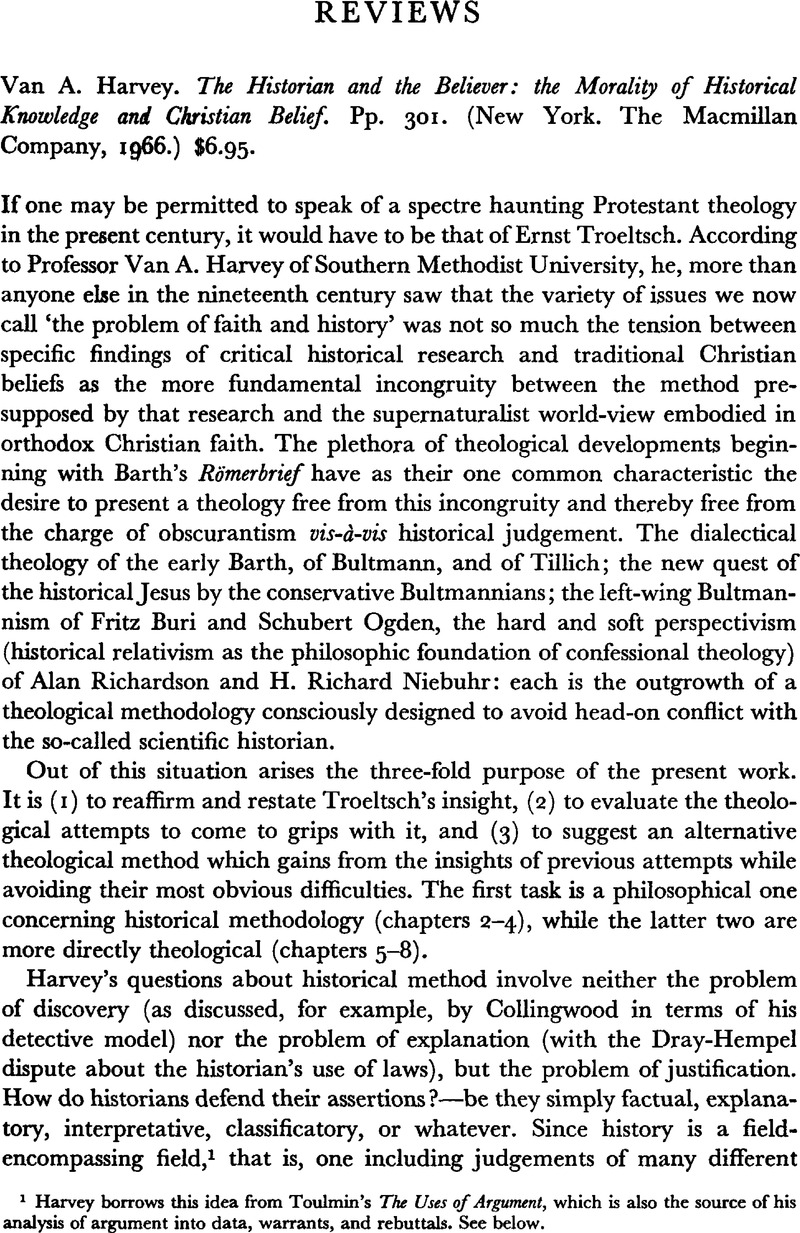No CrossRef data available.
Article contents
Van A. Harvey. The Historian and the Believer: the Morality of Historical Knowledge and Christian Belief. Pp. 301. (New York. The Macmillan Company, 1966.) $6.95.
Published online by Cambridge University Press: 24 October 2008
Abstract

- Type
- Reviews
- Information
- Copyright
- Copyright © Cambridge University Press 1967
References
page 277 note 1 Harvey borrows this idea from Toulmin's The Uses of Argument, which is also the source of his analysis of argument into data, warrants, and rebuttals. See below.
page 278 note 1 Troeltsch's classical essay, ‘Über historische und dogmatische Methode in der Theologie’, is found in Gesammelte Schriften, II, pp. 729–53.Google Scholar Harvey's summary is on pp. 14–15.
page 278 note 2 This terminology has recently been challenged by T. A. Roberts. See ‘Gospel Historicity: Some Philosophical Observations’, Religious Studies, vol. 1, no. 2, pp. 185–202 (04, 1966).Google Scholar While it is no doubt true that nineteenth century historiography was less monolithic than is often recognised, the term positivistic remains a useful description in so far as the emphasis on scientific objectivity was generally such as to be incompatible with metaphysical dogmatism.
page 278 note 3 Op. cit. p. 34.
page 279 note 1 Op. cit. p. 68.
page 279 note 2 Ibid. pp. 115 and 114.
page 279 note 3 Ibid. p. 87.
page 279 note 4 Op. cit. p. 74.
page 279 note 5 ‘[Scientific laws] enable the historian to judge only what could have happened, not what did happen’, p. 74. In this context Harvey's use of quotation marks around ‘possible’ and ‘impossible’ is presumably an indication that these are not logical modalities.
page 279 note 6 Op. cit. p. 62.
page 280 note 1 Op. cit. p. 242.
page 281 note 1 Cf. Harvey's treatment of the saint who sang the Te Deum with his head under his arms after being beheaded, p. 116.
page 281 note 2 Op. cit. p. 276.
page 282 note 1 Op. cit. p. 280.
page 282 note 2 Ibid. p. 281.




